What Every Business Owner Should Know About Commercial Insulation
Running a business is already full of challenges—skyrocketing utility bills, drafty work areas, and equipment that always seems to be under stress shouldn’t be part of the list. Yet for many business owners, these headaches are tied to something they don’t think about very often: insulation.
Professional commercial insulation services isn’t just about keeping heat in during winter or blocking it out in summer. It’s about saving on energy costs, creating a comfortable environment for everyone inside, and protecting the building from damage over time. If you’ve been putting insulation upgrades on the back burner, now might be the time to rethink that.
Why Commercial Insulation Deserves More Attention
A building without the right insulation is like trying to heat or cool a room with the windows wide open—it’s a losing battle. Energy escapes, costs go up, and systems work harder than they should.
Energy Efficiency and Lower Bills
When insulation is inadequate, heating and cooling equipment runs non-stop, chewing through electricity or fuel. Over time, that not only drains the budget but also wears out expensive HVAC systems faster.
Comfort for Everyone Inside
Temperature swings in the workspace can throw off focus and make clients uncomfortable. Proper insulation keeps the climate steady, which is good for morale and business.
Fun Fact: Just a two-degree drop in temperature can lower employee productivity by up to 10%.
Types of Commercial Insulation and How They Help
Different buildings call for different insulation strategies. The best choice depends on the building’s age, design, and how it’s used.
Spray Foam Insulation
Expands to seal every crack and gap. Ideal for irregular spaces, older buildings, and areas where moisture is a concern.
Fiberglass Insulation
Affordable and common. Works well in walls and ceilings but doesn’t provide an airtight seal.
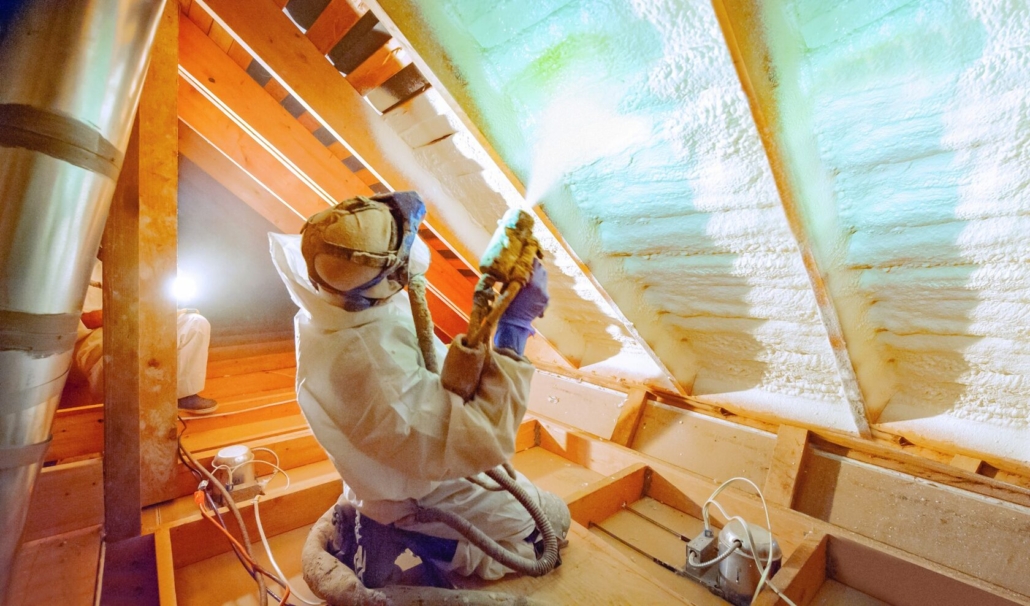
Rigid Foam Board
High insulating value per inch. Commonly used on exterior walls, roofs, and underground applications.
| Type | Best For | Key Benefit |
|---|---|---|
| Spray Foam | Older buildings, damp areas | Airtight and moisture resistant |
| Fiberglass | Walls, ceilings | Affordable and effective |
| Rigid Foam Board | Exterior walls, roofs | High R-value per inch |
Fun Fact: Spray foam can reduce air leakage by up to half compared to traditional insulation.
How Insulation Protects the Building
Temperature control is only part of the story—good insulation also helps prevent damage that could shorten a building’s lifespan.
Moisture Control
When insulation does its job, it keeps condensation in check, helping avoid mold growth, rust, and rot.
Protecting Structure and Materials
By keeping temperatures more consistent, insulation prevents materials from expanding and contracting too much, which can cause cracks and other wear over time.
Signs the Insulation Needs an Upgrade
The trouble with insulation is that problems aren’t always visible until they cause expensive repairs. Here are a few warning signs:
Hot and Cold Spots
If some parts of the building feel like a sauna and others like a freezer, it’s usually because insulation coverage is uneven.
Rising Energy Costs
Bills creeping up without an obvious reason often point to energy slipping out through walls, ceilings, or floors.
Moisture or Mold
Water damage or mold patches are signs that insulation isn’t stopping condensation effectively.
Is Commercial Insulation a One-Time Fix?
Not really. Quality insulation can last for decades, but changes in how a building is used, severe weather, or renovations can affect how well it works. A periodic inspection every few years can catch small issues before they turn into big expenses.
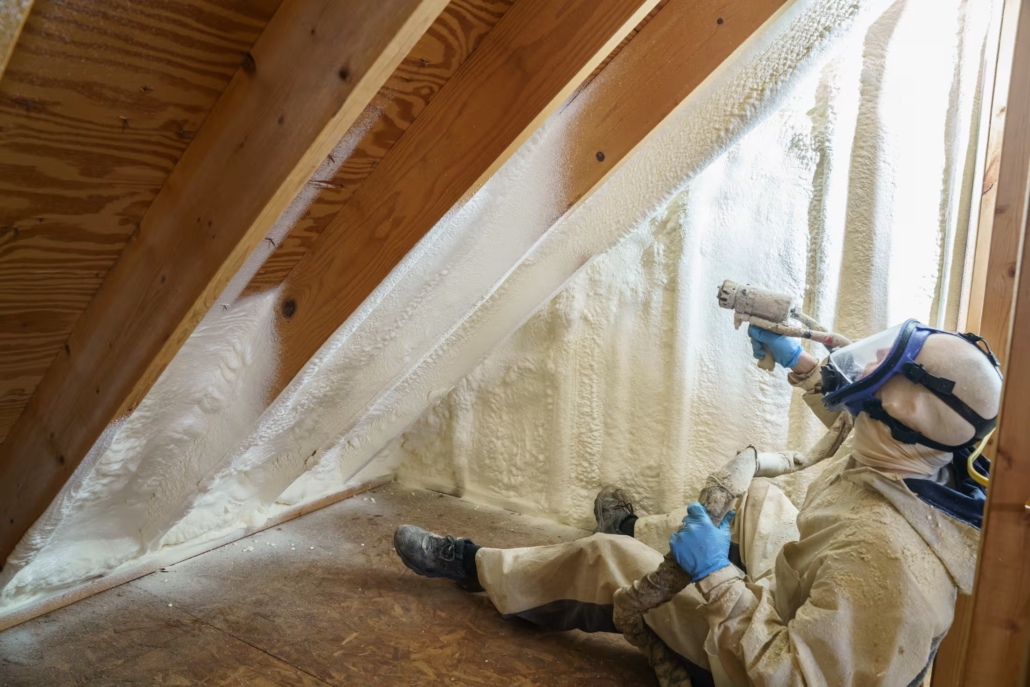
Conclusion
Insulation isn’t the flashiest investment, but it’s one of the smartest for a commercial property. It saves money month after month, makes the building more comfortable, and helps prevent serious damage.
Spray foam offers a tight seal and moisture resistance, fiberglass gives affordable coverage, and rigid foam board delivers high performance in less space. The right choice depends on the building’s design and needs.
When insulation is done right, it’s not something you have to think about every day—and that’s the whole point. You get a comfortable, efficient building without the constant frustration of battling temperature swings or paying through the nose for energy. To make sure it’s installed properly, working with a professional spray foam insulation contractor can help you get the best results.
FAQs
How often should commercial insulation be checked?
Every three to five years is a safe bet. Inspections can reveal damage, moisture issues, or settling before it becomes a major repair.
What’s the most common mistake with insulation?
Focusing only on the insulation’s R-value without addressing air leaks. Air sealing is just as important for performance.
Can insulation reduce office noise?
Yes. Spray foam, mineral wool, and other materials can make a noticeable difference in blocking sound from outside or between rooms.
Does insulation work the same way in old and new buildings?
Not always. Older structures may need different installation techniques to work with existing framing and materials.
What’s the quickest way to see if insulation is failing?
A thermal imaging scan will show where heat is escaping or coming in, making problem areas easy to spot.
Author: Wil Perkins is the founder of Peninsula Insulation and a long-time resident of Easton, Maryland. With nearly five years in the insulation business, he’s known for delivering reliable results and lasting solutions.
Reviewer: Emily Martinez has 12 years of experience in spray foam insulation. She reviewed this article and shared insights on making it more practical for professionals in the industry.

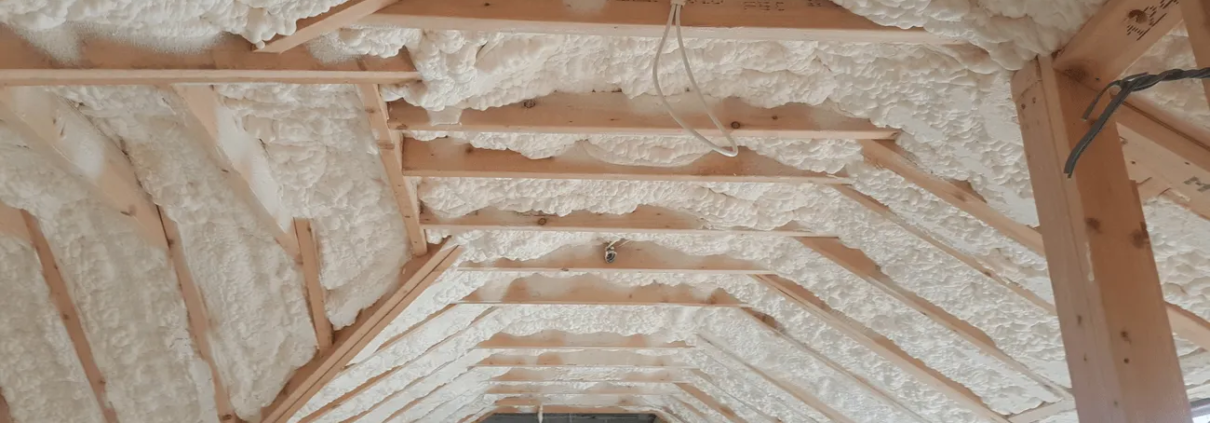
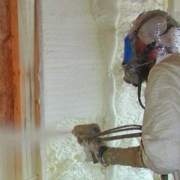
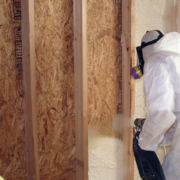
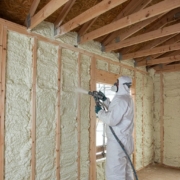


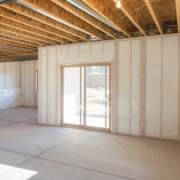

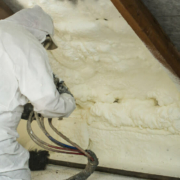

Leave a Reply
Want to join the discussion?Feel free to contribute!